
Cuisine
Russian cuisine
Russian cuisine is characterized by the use of fresh and seasonal ingredients, such as vegetables, fruits, grains, and meats. The dishes are often slow-cooked and spiced with herbs and spices. Some of the popular dishes include borscht (beet soup), pelmeni (dumplings), and shashlik (grilled meat skewers).
Typical ingredients
Beef, Pork, Chicken, Potatoes, Onions, Garlic, Tomatoes, Bell peppers, Eggplant, Sour cream, Cheese, Dill, Parsley, Paprika, Cumin
Presentation and garnishing
The dishes are often presented in a rustic and simple manner, with minimal garnishing. However, some dishes, such as pelmeni, may be decorated with intricate patterns.
Russian cuisine is also known for its vodka, which is made from local grains. The vodka is an important part of the Russian culture, and is often served during meals and celebrations.
More cuisines from this region...
Tatar cuisine, Yamal cuisine, Mordovian cuisine, Chechen cuisine, Chukchi cuisine, Bashkir cuisine
History
Russian cuisine has been influenced by the neighboring countries, such as Tatarstan, Mongolia, and China. The cuisine has evolved over time, with new ingredients and cooking techniques being introduced. The traditional dishes have been passed down from generation to generation, and are an important part of the Russian culture.
Cultural significance
Food is an important part of the Russian culture, and is often served during celebrations and gatherings. The traditional dishes are a symbol of the Russian identity and heritage.
Health benefits and considerations
Russian cuisine is generally healthy, as it relies on fresh and seasonal ingredients. However, some dishes, such as borscht, may be high in sodium. It is important to consume these dishes in moderation.
Russian cuisine dishes Browse all »

Anchovy canapés
Anchovy Appetizers
Anchovy canapés are a classic appetizer that are perfect for any occasion. These bite-sized treats are easy to make and are sure to impress your guests.
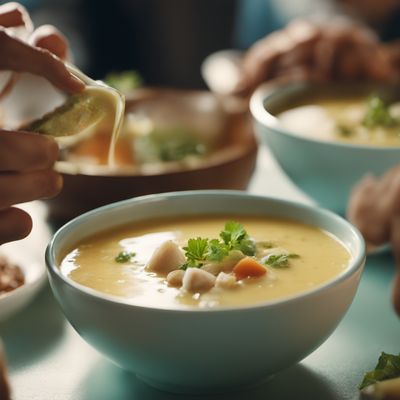
Cold Soup
Cold soup
Cold soup is a refreshing and healthy dish that is perfect for hot summer days. It is made with a variety of fresh vegetables and can be served as a starter or main course.
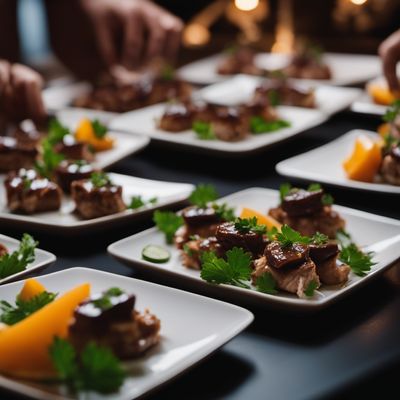
Chicken liver canapés
Chicken Liver Appetizers
Chicken liver canapés are a rich and flavorful appetizer that are perfect for any occasion. These bite-sized treats are full of protein and are sure to satisfy your guests.
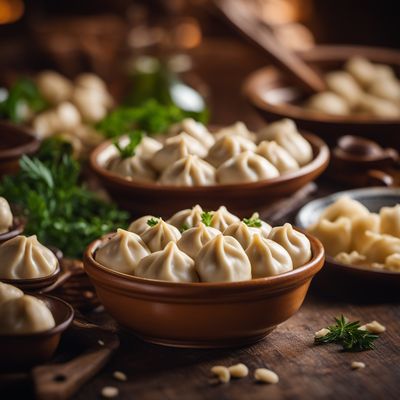
Pelmeni
Pelmeni is a traditional Russian dish that is similar to dumplings. It is a type of pasta that is filled with meat, usually beef or pork, and it is typically served with sour...
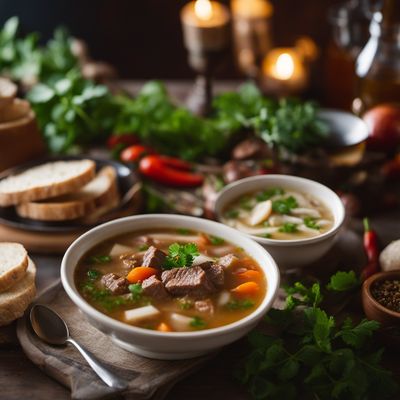
Meat Soup
Meat soup is a hearty and filling dish that is popular in many different cultures around the world. It is typically made with a base of meat broth, and includes a variety of...

Sushki
Sushki are a traditional Russian snack that are often served with tea. They are small, crunchy, and slightly sweet, making them a perfect accompaniment to a hot cup of tea.

Cheese canapés
Cheese Appetizers
Cheese canapés are a simple and delicious appetizer that are perfect for any occasion. These bite-sized treats are made with a variety of cheeses and are typically served on a...

Oshav
Oshav is a traditional Jewish dessert that is perfect for any occasion. It is a sweet and refreshing dessert that is made with dried fruit and nuts.
Russian cuisine recipes Browse all »

Homemade Sushki
Delightful Russian Sushki: Crunchy Rings of Joy
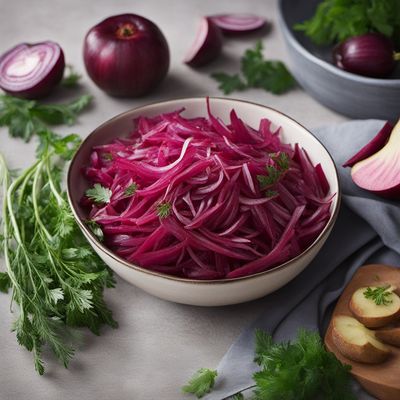
Russian Beet Salad with a Twist
Beet and Vegetable Medley: A Vibrant Russian Delight
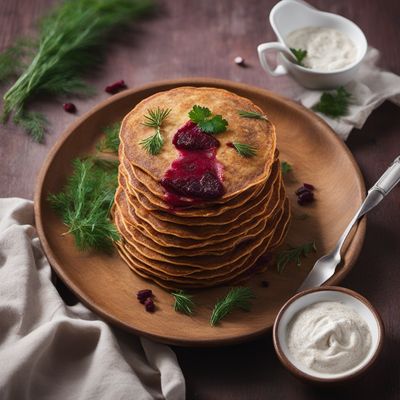
Bortsoki - Russian Beetroot Pancakes
Vibrant Beetroot Delight: Russian Bortsoki Pancakes

Classic Pizza Margherita
Russian Twist on the Classic Italian Pizza Margherita
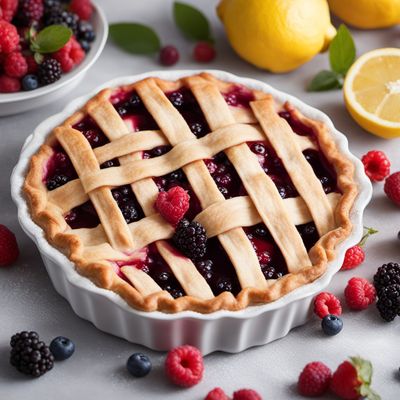
Russian Honey Berry Pie
Sweet and Tangy Honey Berry Pie with a Russian Twist
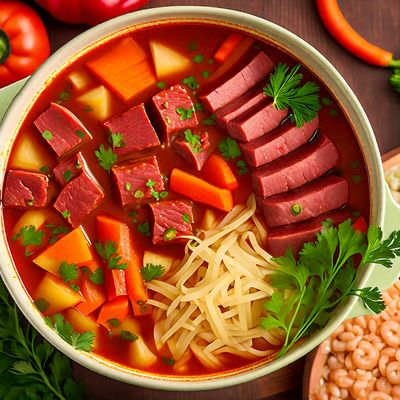
Budae Jjigae - Russian Style
Soviet Stew: A Russian Twist on Budae Jjigae

Pozharsky Cutlet with a Twist
Crispy Chicken Cutlets with a Russian Twist
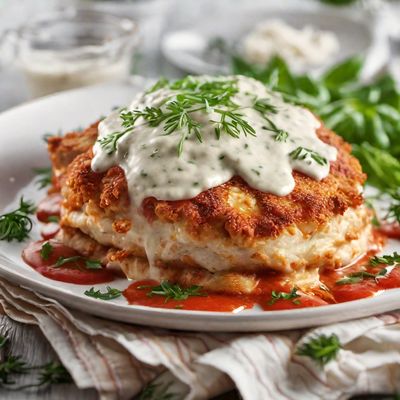
Russian-Style Chicken Parmigiana
Zesty Chicken Cutlets with Russian Twist
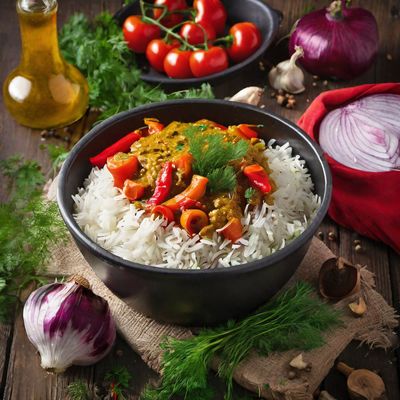
Russian-style Curry
Borscht-inspired Curry: A Fusion of Indian and Russian Flavors
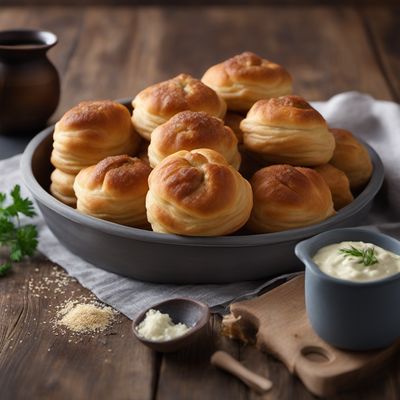
Russian-Style Stuffed Piroshki
Savory Russian Piroshki: A Delicious Twist on a Classic
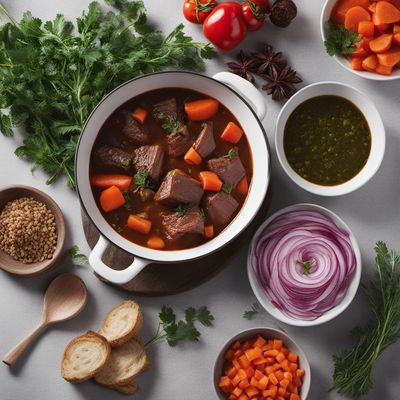
Mishka na Severe - Russian Arctic Bear Stew
Arctic Delight: Hearty Russian Bear Stew
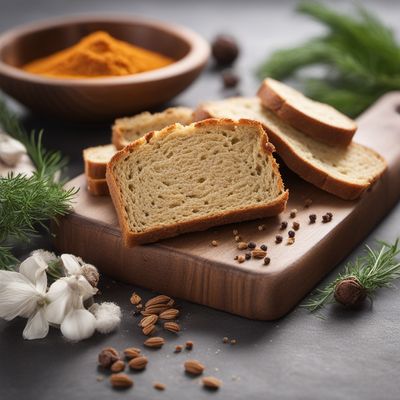
Homemade Russian Rusk
Crispy Delights: Homemade Russian Rusk Recipe